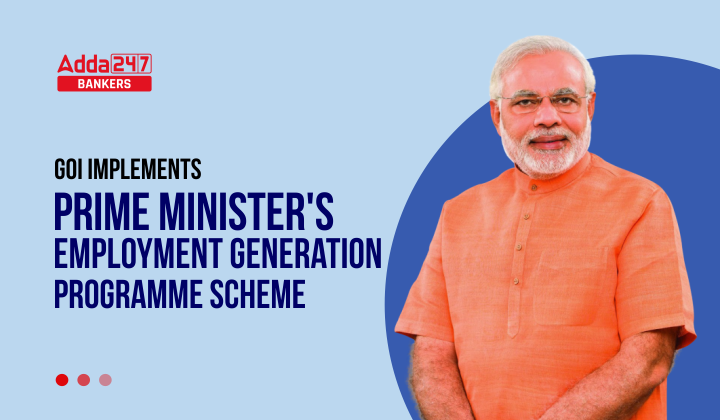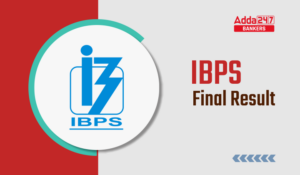Introduction
The Prime Minister’s Employment Generation Programme (PMEGP) is a flagship scheme of the Ministry of MSME, which was launched during the year 2008 – 09 (September 2008) by merging the erstwhile Rural Employment Generation Programme (REGP) implemented by KVIC and Pradhan Mantri Rojgar Yojana (PMRY) implemented by District Industries Centers
This is a credit linked subsidy scheme for generation of employment opportunities through establishment of micro enterprises in rural as well as urban areas of the Country.
KVIC is the nodal Agency at the national level to implement the scheme designated by Ministry of MSME, Government of India – with the active participation of banks, State Khadi & Village Industries Boards, District Industries Centers (DICs) and Coir Board for coir related activities in both rural as well as urban areas of the country.
Maximum cost of the project eligible for subsidy under the scheme in the manufacturing sector is Rs. 50.00 lakh, and Rs. 20.00 lakh in the service sector.
Other Facts :
⊗Any adult beneficiary above 18 years is eligible for assistance under PMEGP.
⊗Only meant for 1 project.
⊗The definition of family is self and spouse.
⊗To motivate, inspire, confidence and build capacity for establishment of an enterprise,
manage and sustain the unit successfully by beneficiary. As per operational guideline
approved by Ministry of Micro, Small & Medium Enterprises, Govt. of India PMEGP
beneficiary has to undergo two weeks (10 Days)& six days ( the project cost up to Rs 5.00
lakhs) Entrepreneurship Development Programme (EDP) before release of sanctioned loan
to beneficiaries.
⊗The Following list of activities will not be permitted under PMEGP for setting up of micro enterprises/ projects/ units.
i. Any industry/Business connected with Meat(Slaughtered), i.e. processing, canning and/or serving items made of it as food, Production/Manufacturing or sale of intoxicant items like Beedi/Paan/Cigar/Cigarette etc. Hotels or Dhaba or Sales outlet serving liquor, preparation/producing tobacco as raw materials, tapping of toddy for sale will not be allowed.
(a) However, serving/selling non-vegetarian food at Hotels/Dhabas will be allowed.
ii. Activities prohibited by Local Government/Authorities keeping in view environment or Socio-economic factors will not be allowed.
iii. Manufacturing of polythene carry bags of less than 75 microns thickness and manufacture of carry bags or containers made of recycled plastic for storing, carrying, dispensing or packaging of food stuff and any other item which causes environmental problems. Thickness of polythene carry bags shall be governed by the Ministry of Environment, Forest and Climate changes notification for plastic waste management rules and amendments from time to time.
iv. Any Industry/Business connected with cultivation of crops/plantation like Tea, Coffee, Rubber etc. sericulture (Cocoon rearing), Horticulture, Floriculture, Animal Husbandry will not be allowed.
(a) However, value addition under these will be allowed under PMEGP. Off Farm/Farm Linked activities in connection with sericulture, horticulture, floriculture etc. will be allowed.
Following industry/Business connected with Animal Husbandry will also allowed:
(a) Dairy-Milk and other dairy products through primarily Cows but also sheep, goats, camels, buffaloes, horses, and donkeys.
(b) Poultry-Poultry, kept form their eggs and for their meat, include chickens, turkeys, geese and ducks.
(c) Aquaculture-It is the farming of aquatic organisms including fish, molluscs, crustaceans and aquatic plants
(d) Insects -Including Bees, Sericulture, etc.
(As a special case piggery, which is a major source of livelihood in NER may also be allowed in NER states only).
Impact of the scheme:
Since its inception in 2008-09, about 7.8 lakh micro enterprises have been assisted with a subsidy of Rs 19,995 Crore generating estimated sustainable employment for 64 lakh persons. About 80% of the units assisted are in rural areas and about 50% units are owned by SC, ST and women categories.
Major impact: Scheme will create sustainable estimated employment opportunities for about 40 lakh persons in five financial years.
States/districts covered: All the States/UTs will be covered under the Scheme.
Higher rate of Margin Money subsidy – 25% of the project cost in urban area and 35% of the project cost in rural areas, for special category applicants including, SC, ST, OBC, women, Transgender, Physically Disabled, NER, Aspirational and Border district applicants. For General category applicants subsidy is 15% of the project cost in urban area and 25% of the project cost in rural areas.
Recent News:
The PMEGP has now been approved for continuation over the 15th Finance Commission Cycle for five years from 2021-22 to 2025-26 with an outlay of Rs.13554.42 Crore. Following major modifications/improvements have been made in the existing Scheme:
i. Increasing the maximum project cost from existing Rs.25 lakh to Rs. 50 lakh for manufacturing units and from existing Rs.10 lakh to Rs.20 lakh for service units.
- Modify definition of village industry and Rural Area for PMEGP. Areas falling under Panchayti Raj institutions to be accounted under rural area, where as areas under Municipality to be treated as urban area.
- All Implementing Agencies are allowed to receive and process applications in all areas irrespective of the rural or urban category.
- PMEGP applicants under aspirational districts and transgender will be treated as Special category applicants and entitled for higher subsidy.
Write answers of the following in the comment sections:
- Who is the nodal agency for the implementation of Prime Minister’s Employment Generation Programme (PMEGP)?
- Ministry of MSME
- Niti Aayog
- KVIC
- NABARD
- Ministry of MSME
- In which year Prime Minister’s Employment Generation Programme (PMEGP) was launched?
- 2008
- 2010
- 2012
- 2014
- 2016
- What is the minimum age for eligibility of Prime Minister’s Employment Generation Programme (PMEGP)?
- 25
- 18
- 14
- 30
- none
- General Awareness Quiz Series 2023: 17 January
- Ramakrishna Mission’s Awakening Programme



 GA Capsule for SBI Clerk Mains 2025, Dow...
GA Capsule for SBI Clerk Mains 2025, Dow...
 The Hindu Review October 2022: Download ...
The Hindu Review October 2022: Download ...
 IBPS Final Result 2025 Coming Out Tomorr...
IBPS Final Result 2025 Coming Out Tomorr...







